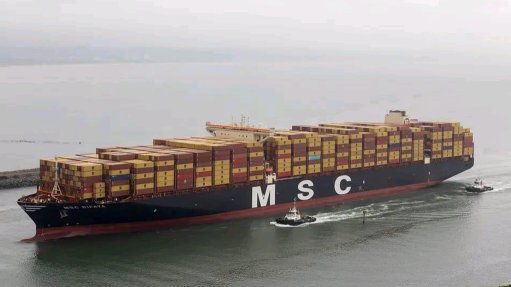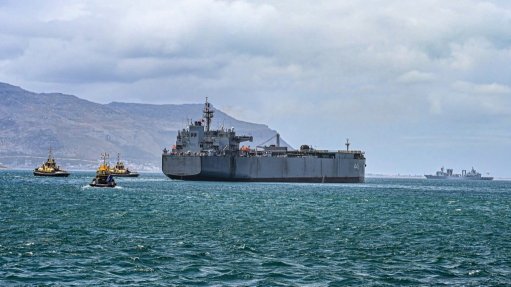The war is over
Alan Campbell mentioned to me that, since this column is titled Electrically Speaking, it really should be about electricity. Good point. Well, water is normally supplied by pumps, and pumps work on electricity. So, joining the dots, this column is about water. Or more specifically, the recent drought in Cape Town. The Cape dams are now at 50% capacity, double the levels of a year ago.
But what a ride it has been! It all started with water restrictions of a very severe nature – you were not allowed to water the lawn on certain days and were not allowed to wash the car with a hosepipe. The restrictions increased by the week, with extraordinary results. Persons were restricted to no more than 50 ℓ of water per person per day. Residences using excessive water were to be fined. No topping up of swimming pools.
The first extraordinary result lay in the collecting of spring water by many people from each of three Cape Town springs. These are at Spring street, in Newlands, at the Newlands brewery, and in Kalk Bay. There are others but, prey, why should I tell you where?
People would arrive and unload 20 ℓ plastic water collection drums, up to five at a time. While others waited, these would be filled in about 25 minutes and the queue would shuffle forward. Finally, the rules were changed so that people with a 10 ℓ bottle could bypass the 20 ℓ queue, but this was hard to control.
Spring street is off Kildare avenue, and soon Kildare avenue was one-way stop-go traffic, with competition from people pushing trolleys with 20 ℓ bottles to and from the spring. Residents in Spring street were severely inconvenienced. The question was: What was the spring water being used for? Storage against the day of zero water? As a supplement to the 50-ℓ-day allowance? I found I could take 50 ℓ of water a day, wash, make coffee, cook, flush the loo . . . and still have water to spare. Okay, my lawn died to nothing but heck, I am originally from Johannesburg, so nothing new there.
As often happens in a crisis, housewives came to fore for the fight. Browbeaten men had to queue at the springs or buy water from the corner shop. The fact that you cannot drink 50 ℓ of water did not stop the wives from timing the men in the showers and refusing to drink the tap water. Quick-buck merchants offered to sell you water for the swimming pool at R1/ℓ. The rich, no standing in the queue for them, invested in R100 000-plus dehumidifier units that could produce about 500 ℓ of water each day.
And all over, all over, people bought PVC water tanks. If I had shares in JoJo Tanks, I would be retired today. The tanks, generally 2 500 ℓ, were fed by the runoff from domestic roofs.
Meanwhile, the City of Cape Town, perhaps with unconscious cynicism, waited until a state of emergency was declared and then went ahead with the construction of three desalination plants. Unkind people (like me) say they wanted to avoid a hugely tedious environmental- impact assessment in which the effect of adding brine to seawater would become the subject of a master’s degree dissertation. But the war is over. Or seemingly so. What we do have is, as an estimate, two-million litres of water stored all over the city in domestic storage tanks. The Spring street spring was closed and a new spring point created at the Newlands swimming pool. People are asking themselves if they dare have an actual bath and blow their 50 ℓ allowance in one self- indulgent morning. The sauna and steam baths in the gyms will be switched on again. What is there not to love? Morning has come.
Article Enquiry
Email Article
Save Article
Feedback
To advertise email advertising@creamermedia.co.za or click here
Comments
Press Office
Announcements
What's On
Subscribe to improve your user experience...
Option 1 (equivalent of R125 a month):
Receive a weekly copy of Creamer Media's Engineering News & Mining Weekly magazine
(print copy for those in South Africa and e-magazine for those outside of South Africa)
Receive daily email newsletters
Access to full search results
Access archive of magazine back copies
Access to Projects in Progress
Access to ONE Research Report of your choice in PDF format
Option 2 (equivalent of R375 a month):
All benefits from Option 1
PLUS
Access to Creamer Media's Research Channel Africa for ALL Research Reports, in PDF format, on various industrial and mining sectors
including Electricity; Water; Energy Transition; Hydrogen; Roads, Rail and Ports; Coal; Gold; Platinum; Battery Metals; etc.
Already a subscriber?
Forgotten your password?
Receive weekly copy of Creamer Media's Engineering News & Mining Weekly magazine (print copy for those in South Africa and e-magazine for those outside of South Africa)
➕
Recieve daily email newsletters
➕
Access to full search results
➕
Access archive of magazine back copies
➕
Access to Projects in Progress
➕
Access to ONE Research Report of your choice in PDF format
RESEARCH CHANNEL AFRICA
R4500 (equivalent of R375 a month)
SUBSCRIBEAll benefits from Option 1
➕
Access to Creamer Media's Research Channel Africa for ALL Research Reports on various industrial and mining sectors, in PDF format, including on:
Electricity
➕
Water
➕
Energy Transition
➕
Hydrogen
➕
Roads, Rail and Ports
➕
Coal
➕
Gold
➕
Platinum
➕
Battery Metals
➕
etc.
Receive all benefits from Option 1 or Option 2 delivered to numerous people at your company
➕
Multiple User names and Passwords for simultaneous log-ins
➕
Intranet integration access to all in your organisation


















